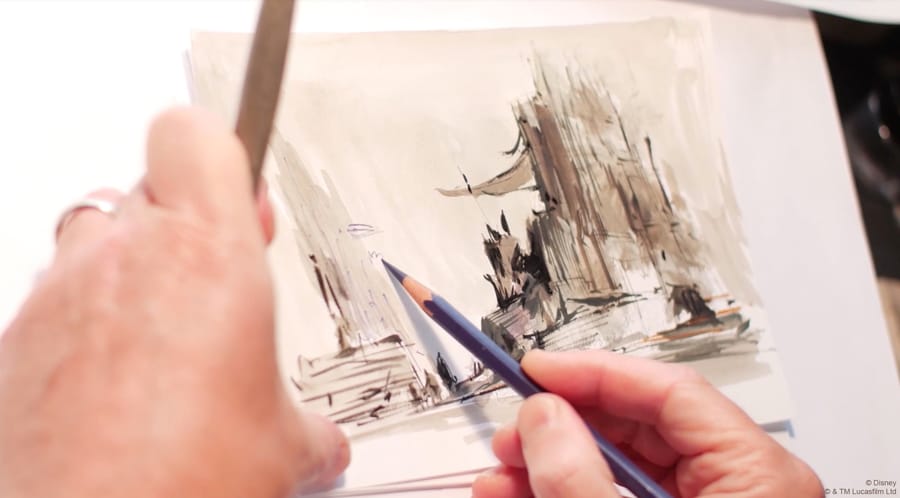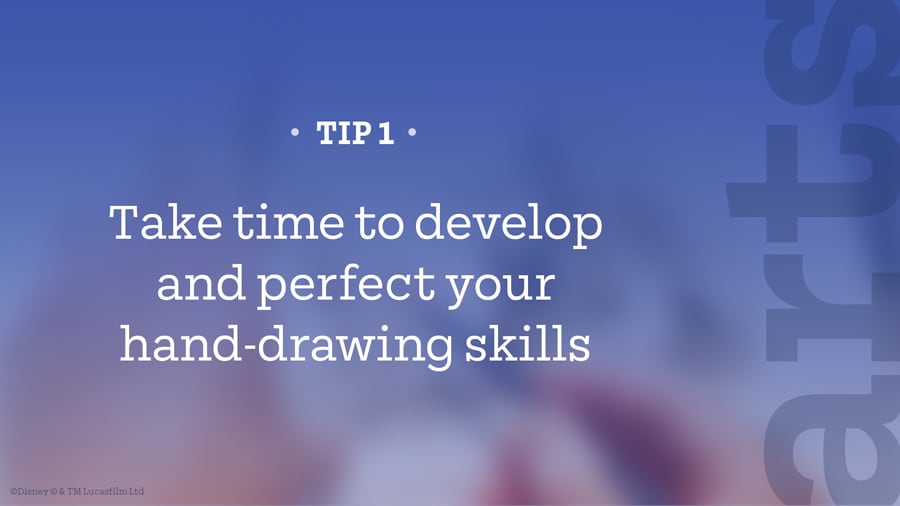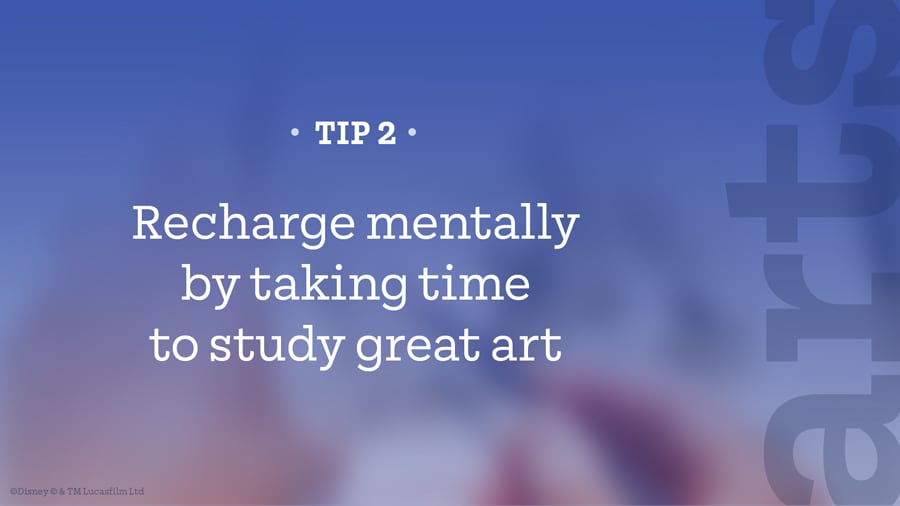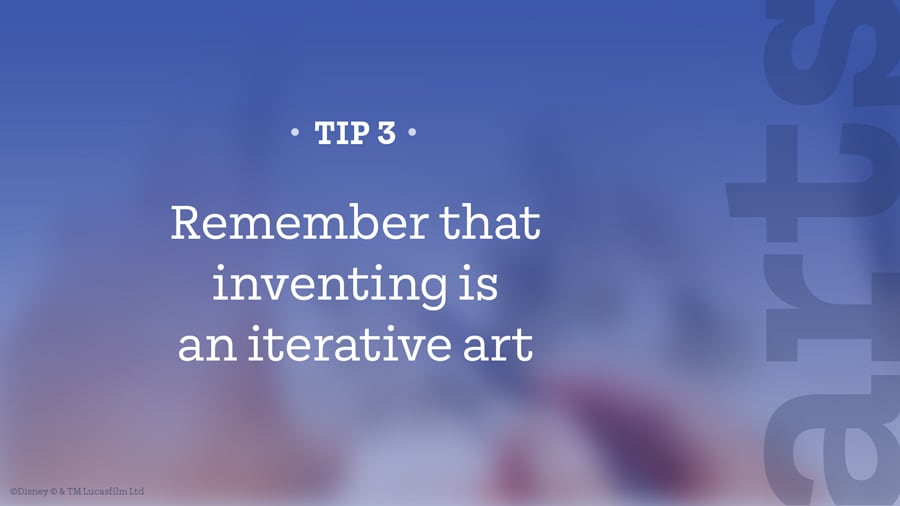Disney Imagineers are sending a few tips our way using STEAM! If you aren’t familiar with the “STEAM” acronym, it stands for Science, Technology, Engineering, Arts and Math. Disney Imagineers are jumping in with this hands on learning approach, starting with the “A” in STEAM. That’s right, ART! Check out the tips below as shared by DisneyParksBlog:
In celebrating May the Fourth last week, we dug up this early sketch of Star Wars: Galaxy’s Edge. The image is an example of how Disney Imagineers often start with a hand-drawn sketch to help solidify and provide direction for an idea before it’s brought to life through other areas of STEAM (Science, Technology, Engineering, Arts and Math).

All five fields work in tandem at Imagineering to develop new concepts and create amazing experiences. In this new series, Imagineers share their STEAM tips based on what works for them. We’ll cover other areas of STEAM and related tips in later blog posts, but let’s do as one Imagineer suggested and start with “A” – art!

For a no obligation, FREE Quote with new bookings contact our sponsor Magical Vacation Planner by calling: 1(407)442-0289
Or for a free no obligation quote with new bookings you can fill out the form by Clicking HERE!
Lyndsey Vincent, a senior interior designer, said, “With all the great technology out there today, it can be tempting to start design sitting at your screen, but you’ll be surprised how putting pen to paper changes the way you think about your design. Having a hand-drawing to review often solicits great feedback in early phases of design as the looseness of the drawing communicates the intent, but leaves room for other ideas to emerge. Having good hand-drawing skills also will be a stand-out factor in your portfolio for those getting ready to apply to college or jobs.”

Visual Effects Designer Matthew Schoepf said, “Creating art and media for theme parks and attractions requires a high level of technical execution and planning. To stimulate creative thinking, it’s important for me to find that quiet time between tasks or in the early morning or evening to research something I’m personally curious about, and study it to make sure I’m growing as an artist. I would encourage students to recharge mentally by taking time to study great art from our past, from color and light in traditional landscape paintings to artists whose anatomy studies and sculptures are widely available online. You don’t need to be an ‘exceptional’ artist. It just takes a pencil, a piece of paper and curiosity to get started.”

Lanny Smoot, a Disney Research Fellow, advised, “If you want something that doesn’t exist in this world yet, think of what it would be like to have it, and then think about how you could cause it to happen. Learn as much as you can about ways to cause your vision to come true. For example, see how others may have approached what you want to do. I am always curious and wonder whether things that haven’t been done could be done, and if things that are being done could be done in better, or different, ways.”
Stay tuned as we cover engineering next!
Source: DisneyParksBlog

 Disney Dining Serving up the latest Disney Eats, Treats, News, and More!
Disney Dining Serving up the latest Disney Eats, Treats, News, and More!




